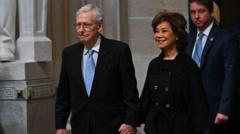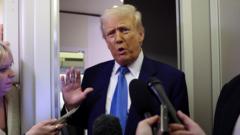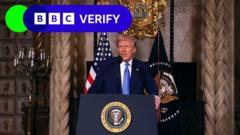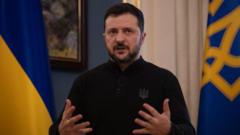This article explores how President Trump's geopolitical strategies, often perceived as unilateral and aggressive, compromise the voices and needs of communities like Palestinians and Ukrainians in favor of broad power maneuvers.
Trump's Geopolitical Strategy: The Marginalization of Affected Populations

Trump's Geopolitical Strategy: The Marginalization of Affected Populations
President Trump's foreign policy, emphasizing "America First," is critiqued for sidelining populations directly impacted by international deals.
In Munich this past week, Western allies of the United States gathered amid a cloud of uncertainty, anxious about the implications of President Trump’s aggressive assertiveness on the global stage. Yet, amidst this turmoil, the voices of those who literally have skin in the game—the Palestinians and Afghans, Greenlanders, and Panamanians—are conspicuously absent. These populations, often caught in the crosshairs of U.S. foreign policy, find their priorities relegated to the role of collateral in what has become a geopolitical chess game, simplistic and heavily influenced by an "America First" mindset.
The fate of Ukrainians is particularly pressing. As President Trump engages directly with Russian President Vladimir V. Putin in discussions aimed at a possible peace settlement, many Ukrainians find themselves sidelined, their aspirations marginalized in negotiations that pertain directly to their homeland. There are concerns that any deal brokered may overlook the profound human costs endured in a conflict that has seen tens of thousands of Ukrainian lives lost and significant portions of territory compromised.
Charles A. Kupchan, an academic specializing in international affairs at Georgetown University, emphasizes that such strong-arming has historical precedent in American foreign policy. However, traditional practices included a semblance of acknowledgment of local desires through dialogue, a missing component in Trump’s current approach. Under his administration, policies reminiscent of imperialism draw criticism, suggesting a troubling neglect for local populations who should have a voice in decisions that define their territories and futures.
This reality challenges the notion of benevolent power and raises critical questions about the ethics of foreign policy that leans toward unilateral power moves devoid of regional input. As nations grapple with the implications of Trump's strategic imperatives, the long-term effects on these marginalized communities could resonate for years to come. The global order is shifting, but at what cost to those who find themselves as mere players in a game they did not choose to play?























